President Andrés Manuel López Obrador’s decision to travel to Washington this week was met with concern and incredulity among many in Mexico — albeit with substantial public opinion support for his trip, according to a July 1 El Financiero newspaper poll. Meanwhile, in Washington, the trip was received mostly with a mix of curiosity, expectation, and bafflement. Two questions dominated most of the discussion surrounding the president’s first trip abroad since being sworn in as president in December 2018: In the U.S., it was mainly how two men who on paper seem to be ideological polar opposites have gotten along; in Mexico, conversely, most of the discussion has been about the merits and timing of the visit.
Setting aside the cliché in most U.S. press coverage of the interaction between them — Trump a pro-business chauvinist, and López Obrador a “leftist” (he is mostly a nationalist and statist conservative) — both men are two similarly hard-wired presidents and populists. As all good bullies do, Trump sniffs out weakness: López Obrador’s landslide electoral victory and congressional majority — in comparison to his predecessor, Enrique Peña Nieto, whom Trump disliked and saw as weak — surely had an impact on Trump’s initial approach to his current Mexican counterpart. And López Obrador, who has truly sought at all cost to avoid conflict with his American counterpart, at some point decided — or was convinced — that bending the knee and appeasing Trump was better than standing his ground.
López Obrador had not travelled abroad since his inauguration, skipping G-20 and Asia-Pacific Economic Cooperation (APEC) summits, as well as the U.N. General Assembly. As probably one of the most intellectually incurious and disinterested Mexican presidents of the modern era when it comes to what happens around the globe, he could have certainly waited a few months more, until after November 3, to travel to Washington. Instead, in a seemingly Pavlovian response to Trump’s statement (in Arizona, before his rally on June 24) that his Mexican counterpart would soon come to visit him — at a juncture in which López Obrador had seemingly conceded to pressure within his cabinet to postpone the visit and use the pandemic as an excuse — he has waded straight into politics in the U.S. The decision to travel to Washington now was fraught with challenges, not least the fact that President Trump will use President López Obrador as an electoral prop. In fact, just a few hours after the visit ended, pro-Trump Hispanic outreach social media accounts tweeted López Obrador’s baffling Rose Garden statement that Trump respected Mexico and Mexicans.
It’s certainly a slap in the face of migrants in the U.S. — 11 million of whom are Mexicans — and a boon to Trump’s dog-whistle xenophobia and chauvinism. Trump is the most anti-Mexican U.S. president in modern history, but in that statement López Obrador conflated Trump’s respect for him, which is likely real, with respect for Mexico and Mexicans. And at a time when the U.S. is riven by a level of social and political convulsion unseen in 50 years, meeting with Trump in Washington — just before the general campaign starts — will be perceived by many Americans as a pat on the back for a polarizing and unpopular president. With his remarks in the White House, it would seem that President López Obrador essentially gave President Trump the green light to attack Mexico and its people on both sides of the border.
Moreover, there’s a danger that Trump will use the U.S.-Mexico-Canada Agreement (USMCA) as an opportunity to spike the ball in the endzone, further alienating Democrats in Congress who were key to delivering the votes for the trade agreement’s ratification. If the purpose of the visit was to celebrate the entry into force of the USMCA, then López Obrador — despite the congressional recess — should have also reached out to Speaker of the House Nancy Pelosi and the Democratic leadership to meet and thank them too. It’s baffling that this did not occur, unless of course a fear of incurring Trump’s wrath once again determined Mexican foreign policy objectives and priorities.
What could have easily been achieved via a virtual welcoming of the USMCA’s entry into force morphed into a second successive Mexican government jumping on the Trump electoral bandwagon, deepening perceptions among Democrats that López Obrador prefers to see Trump reelected. Moreover, for a leader who has recurred to the default position that “the best foreign policy is domestic policy,” the trip will lay bare a paradox in López Obrador’s mantra: It is precisely Mexico’s domestic weaknesses and failings that are creating foreign policy vulnerabilities, particularly vis-à-vis this U.S. administration. It is likely that these will be used to once again pressure Mexico in what has become Trump’s “Sinatra policy” towards Mexico: “My way.”
Hopefully the meeting between the presidents will be used by both governments to address looming problems with the entry into force of the USMCA. On the one hand, Trump seems intent on wielding punitive tariffs and mercantilist measures to extract concessions from Canada or Mexico. A case in point are the recent threats regarding Canadian aluminum and steel exports, or Trump’s suggestion about an end to live cattle imports — which only come from Mexico and Canada — in an effort to help U.S. producers hurt by supply chain disruptions. That would be in violation of impending UMSCA rules and disciplines. And on the other, the López Obrador government, and his party in congress, continue enacting abrupt policy shifts and changes to the rules across different sectors that bode ill for the level playing field required under NAFTA and its successor, the USMCA. However, I would not hold my breath that the two threats to the trade pact were actually discussed.
Perception is indeed reality, and López Obrador — and Mexico — can ill afford to be perceived as Trump’s patsies at this juncture of American history. It could have a long-standing impact on Mexico’s relationship with the U.S. and American society, including the voters and the demographics that will determine the future of the country, in the decades to come.
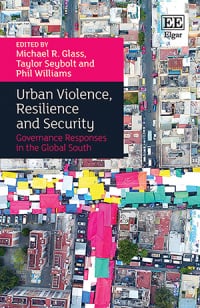
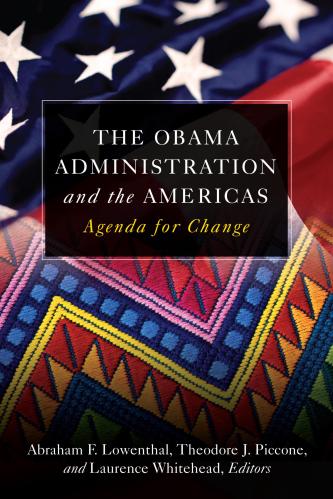
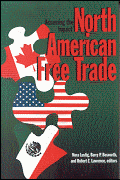
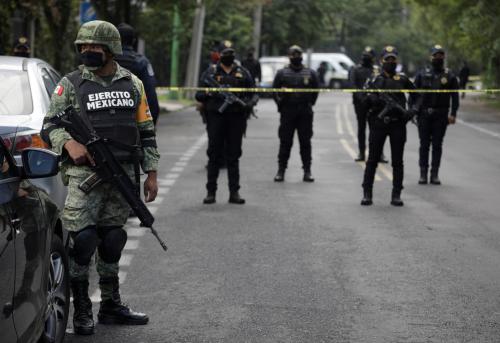
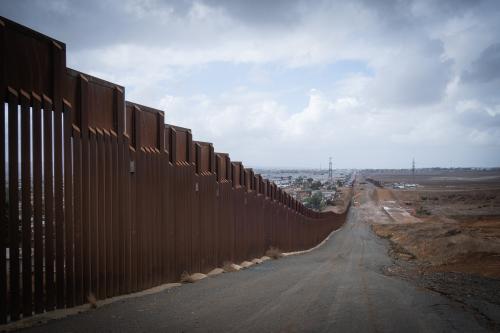
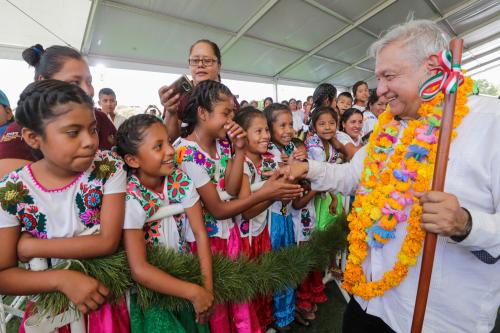

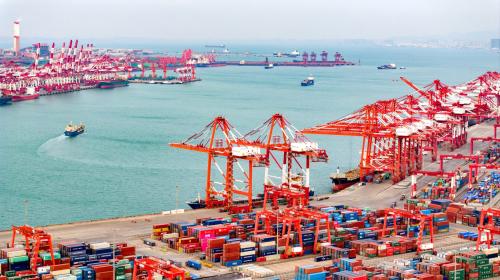
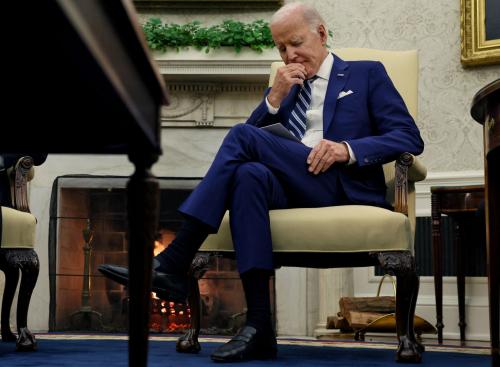

Commentary
López Obrador’s Washington visit played straight into Trump’s hands
July 10, 2020